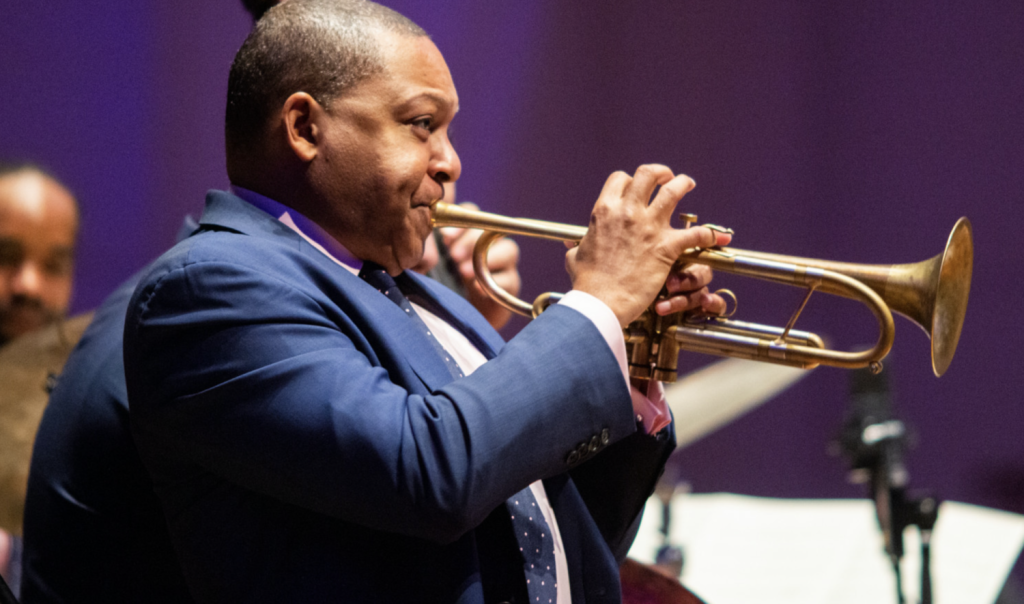Deeper Than Dreams, Or Don’t Listen to Your Mama

Wynton Marsalis, performing in Dortmund, Germany, February 2020. Photo Credit: Luigi Beverelli
When Wynton Marsalis was 17, he knew he had to leave home. His relationship with his mother was contentious. She didn’t want him to become a professional musician, and other people were urging him to find another path as well.
Wynton asked his father, the great pianist Ellis Marsalis, for his opinion.
“Do you love it?” Ellis asked, in speaking of music.
“Yeah, I love it.”
“No, man, I mean, to you really love it? Are you willing to do this no matter what your struggle is?”
“Yeah, I think I love it like that,” Wynton said. So, he disregarded his mama’s advice. (Ironically, she ended up with not one, not two, but four sons who are well-regarded professional musicians.)
Wynton related that conversation during an episode of the podcast Spark & Fire, which reveals the journeys of various creative people. It made me remember the time I heard Ellis Marsalis play live. I was in New Orleans at a cocktail party for TV business folk. They’d come in from all over the country to wheel and deal at a big convention. And nobody was listening to Ellis and his band.
I’m the daughter of a sax player and grew up listening to swing, so on a spectrum with “delighted” on one side and “horrified” on the other, I was one shade shy of the latter end.
Ellis looked so bored and disgruntled. I went up to him when the gig ended and thanked him, but he just wanted to get out of there. Now, after listening to Wynton’s story, I realize that Ellis’s passion far outdistanced any struggle presented by that crowd of numb nuts.
It seems so delicate: how an artist’s path can be squelched by well-meaning people and even their own shortcomings. Long ago, I interviewed Quincy Jones in New Orleans. His 70-year career has spanned many roles that earned him acclaim, but he is perhaps best known for producing some of Michael Jackson’s most beloved recordings.
Quincy talked about conversations that he had with the famous band leader Duke Ellington on the phone late at night. Ellington told him about Buddy Bolden, a cornetist and one of the inventors of jazz. According to Ellington, when Bolden played in New Orleans clubs, the sound of his horn was carried by the Mississippi River fog, traveling through the city much further than it would otherwise go. But Bolden’s career was cut short at age 30 due to alcoholism and schizophrenia.
Another early jazz great cornetist was held back by his wife. Manuel Perez, my husband David’s great grandfather, was a contemporary of Bolden. He must have disregarded his mama too. According to his granddaughter, my mother-in-law Joycelyn, Manuel’s mother went to the priest, worried that jazz would damage her son’s soul. But Manuel went on to become a leading light on the New Orleans jazz scene, then traveled up to Chicago, where he made very good money playing gigs.
But his wife didn’t appreciate his talents. Joycelyn tells me that her grandmother actually used some of Manuel’s written compositions to light the coal stove. She wouldn’t stay in Chicago, and eventually Manuel followed her back to New Orleans. He continued to play for some time, but never reached the acclaim that he could have by remaining in Chicago.
Those of us who have had strong encouragement to pursue our creative joys are so lucky. In speaking of his father on Fire & Light, Wynton said: “Everything I do has something of the ambitions of my father, the things he wanted to see happen.” Ellis spoke to his son about slavery, human rights and freedom. Wynton wove that, along with love for his father, into the loose, seductive song called “Deeper Than Dreams.” It is part of “The Democracy! Suite,” released as a recording this past January.
I certainly know the sense of commitment and love with my own writing, as my sci-fi novel THE JUICE continues to capture interest after years of work. (It snagged 50 reviews, 4.9 out of 5 stars on Amazon so far.)
My creative writing is very unlikely to lead me to the levels of success experienced by the Marsalis family, Jones, Ellington, Bolden or Perez. But that’s not the ultimate point, if you really, really love your craft.